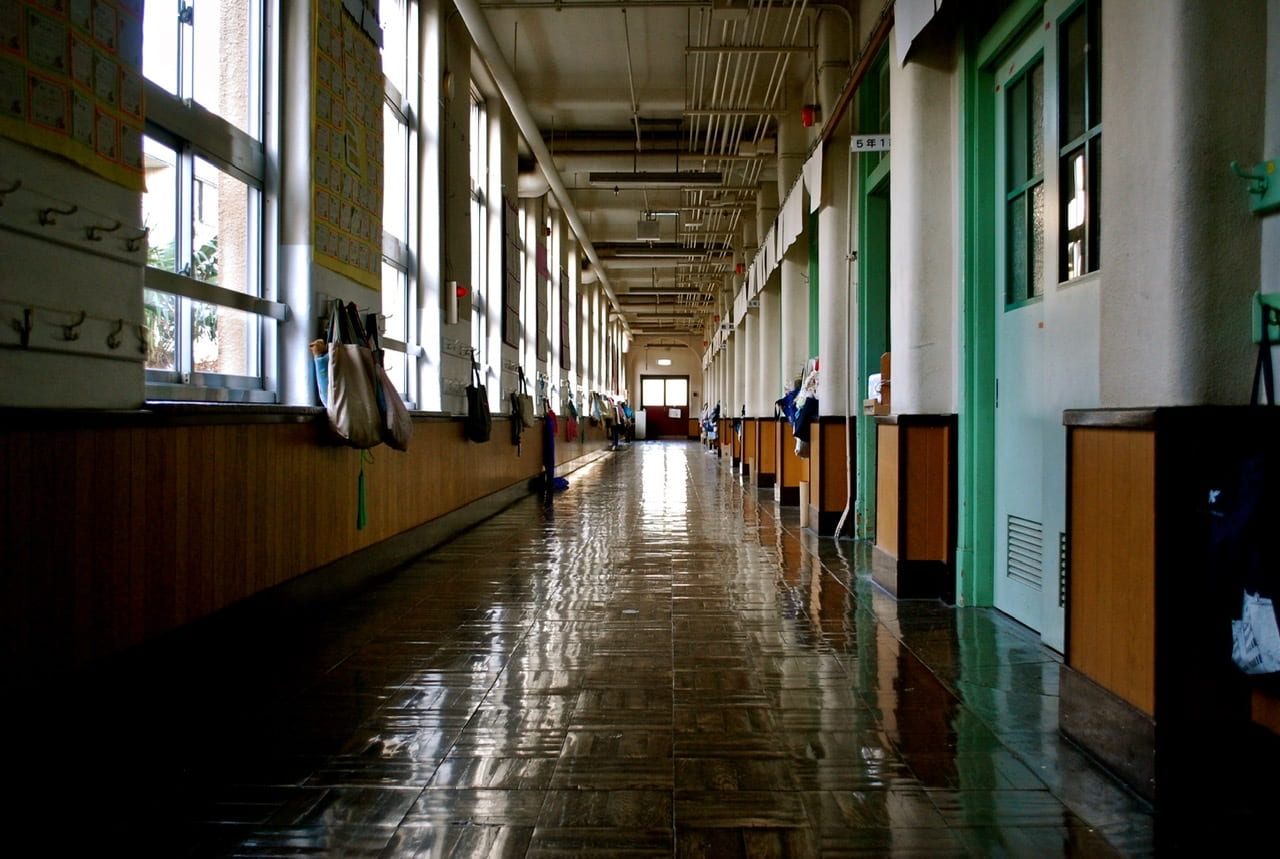Two important factors frequently identified as important in digital change initiatives in schools are teacher development and culture. Teachers need support and training in order to develop their skills, confidence and effectiveness in delivering lessons enhanced by technology. Meanwhile, the broader culture of the school will dictate how developments in teachers’ digital pedagogy are prioritised, supported, valued and sustained.
But how do these two aspects influence one another? How is teacher development and effectiveness influenced by the working environment, conditions and culture of the school?
Kraft and Papay (2014) explored this relationship through some interesting research involving 3,145 teachers from 174 schools in North Carolina over a ten year period. Charlotte-Mecklenburg Schools are part of the 18th largest public school district in the United States. The researchers combined two key datasets: student test records for end-of-year exams in mathematics and teacher responses in the North Carolina Teacher Working Conditions survey. Through combining the data across a number of different responses, including questions focused on professional development, peer collaboration, leadership and school culture, the researchers identified a measure for ‘professional environment’.
They found that after three years, schools at the 75% percentile of professional environment improved their effectiveness (measured by test scores) by 12%, compared to schools at the 25% percentile of professional environment. After 10 years, this increased to 38%. This research challenges the idea that teacher effectiveness is ‘fixed’ – and that an effective or ineffective teacher will be equally as effective or ineffective if they taught in another school or workplace. The researchers also summarise how their findings underscore the importance of recognising the role of the organisation in promoting teacher development. Schools with unsupportive cultures, toxic cultures, weak leadership and poor conditions are likely to be detrimental to long-term teacher improvement – not to mention student achievement.
So what is a school leader’s role in this? And what are the implications for schools and organisations embarking on a digital learning initiative?
When planning a digital learning initiative, school leaders often view teacher skills and ability to use technology as a deficit model – “what’s the gap in teacher knowledge and skills that we need to address?”. Professional learning programmes typically focus on individual teachers rather than organisational capacity. But this research tells us that school leaders need to consider the bigger picture, and to critically assess their professional capital in order to create a professional environment and culture conducive to teacher development.
References
Kraft, Matthew & Papay, John. (2014). Can Professional Environments in Schools Promote Teacher Development? Explaining Heterogeneity in Returns to Teaching Experience. Educational Evaluation and Policy Analysis.
6013719
DGRTGCUY
items
1
apa
0
default
asc
https://reflect.ucl.ac.uk/digital-leadership-in-education/wp-content/plugins/zotpress/
%7B%22status%22%3A%22success%22%2C%22instance%22%3A%22zotpress-21819cbe40a75998771b6125a2892bdf%22%2C%22meta%22%3A%7B%22request_last%22%3A0%2C%22request_next%22%3A0%2C%22used_cache%22%3Atrue%7D%2C%22data%22%3A%5B%7B%22key%22%3A%22DGRTGCUY%22%2C%22library%22%3A%7B%22id%22%3A6013719%7D%2C%22meta%22%3A%7B%22creatorSummary%22%3A%22Kraft%20and%20Papay%22%2C%22parsedDate%22%3A%222014%22%2C%22numChildren%22%3A1%7D%2C%22bib%22%3A%22%3Cdiv%20class%3D%5C%22csl-bib-body%5C%22%20style%3D%5C%22line-height%3A%202%3B%20padding-left%3A%201em%3B%20text-indent%3A-1em%3B%5C%22%3E%5Cn%20%20%3Cdiv%20class%3D%5C%22csl-entry%5C%22%3EKraft%2C%20M.%20A.%2C%20%26amp%3B%20Papay%2C%20J.%20P.%20%282014%29.%20Can%20Professional%20Environments%20in%20Schools%20Promote%20Teacher%20Development%3F%20Explaining%20Heterogeneity%20in%20Returns%20to%20Teaching%20Experience.%20%3Ci%3EEducational%20Evaluation%20and%20Policy%20Analysis%3C%5C%2Fi%3E%2C%20%3Ci%3E36%3C%5C%2Fi%3E%284%29%2C%20476%26%23x2013%3B500.%20JSTOR.%20%3Ca%20href%3D%27www.jstor.org%5C%2Fstable%5C%2F43773479%27%3Ewww.jstor.org%5C%2Fstable%5C%2F43773479%3C%5C%2Fa%3E%3C%5C%2Fdiv%3E%5Cn%3C%5C%2Fdiv%3E%22%2C%22data%22%3A%7B%22itemType%22%3A%22journalArticle%22%2C%22title%22%3A%22Can%20Professional%20Environments%20in%20Schools%20Promote%20Teacher%20Development%3F%20Explaining%20Heterogeneity%20in%20Returns%20to%20Teaching%20Experience%22%2C%22creators%22%3A%5B%7B%22creatorType%22%3A%22author%22%2C%22firstName%22%3A%22Matthew%20A.%22%2C%22lastName%22%3A%22Kraft%22%7D%2C%7B%22creatorType%22%3A%22author%22%2C%22firstName%22%3A%22John%20P.%22%2C%22lastName%22%3A%22Papay%22%7D%5D%2C%22abstractNote%22%3A%22Although%20wide%20variation%20in%20teacher%20effectiveness%20is%20well%20established%2C%20much%20less%20is%20known%20about%20differences%20in%20teacher%20improvement%20over%20time.%20We%20document%20that%20average%20returns%20to%20teaching%20experience%20mask%20large%20variation%20across%20individual%20teachers%20and%20across%20groups%20of%20teachers%20working%20in%20different%20schools.%20We%20examine%20the%20role%20of%20school%20context%20in%20explaining%20these%20differences%20using%20a%20measure%20of%20the%20professional%20environment%20constructed%20from%20teachers%20responses%20to%20state-wide%20surveys.%20Our%20analyses%20show%20that%20teachers%20working%20in%20more%20supportive%20professional%20environments%20improve%20their%20effectiveness%20more%20over%20time%20than%20teachers%20working%20in%20less%20supportive%20contexts.%20On%20average%2C%20teachers%20working%20in%20schools%20at%20the%2075th%20percentile%20of%20professional%20environment%20ratings%20improved%2038%25%20more%20than%20teachers%20in%20schools%20at%20the%2025th%20percentile%20after%2010%20years.%22%2C%22date%22%3A%222014%22%2C%22language%22%3A%22%22%2C%22DOI%22%3A%22%22%2C%22ISSN%22%3A%220162-3737%22%2C%22url%22%3A%22www.jstor.org%5C%2Fstable%5C%2F43773479%22%2C%22collections%22%3A%5B%222YVM5FMJ%22%5D%2C%22dateModified%22%3A%222019-12-15T16%3A06%3A49Z%22%7D%7D%5D%7D
Kraft, M. A., & Papay, J. P. (2014). Can Professional Environments in Schools Promote Teacher Development? Explaining Heterogeneity in Returns to Teaching Experience.
Educational Evaluation and Policy Analysis,
36(4), 476–500. JSTOR.
www.jstor.org/stable/43773479
